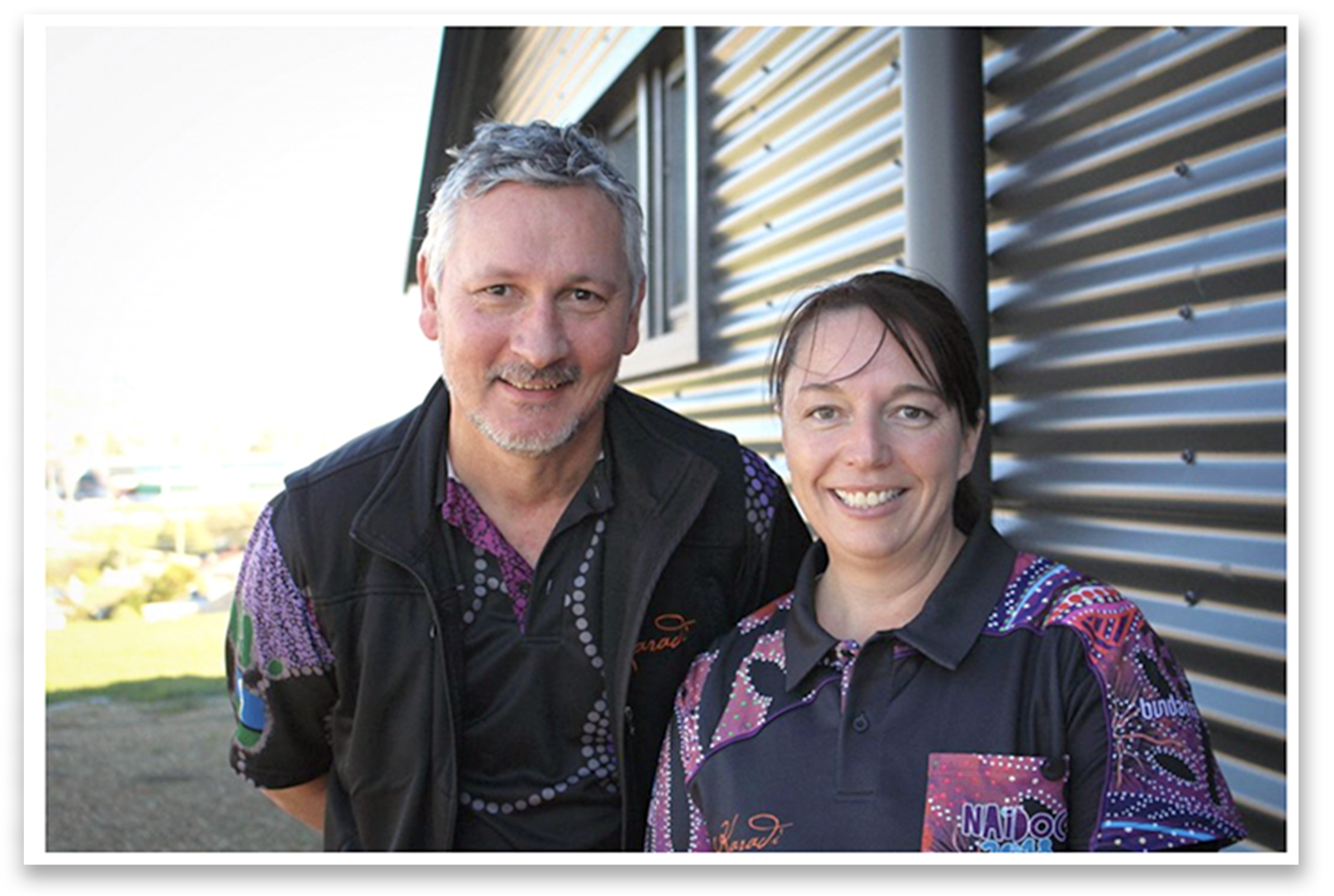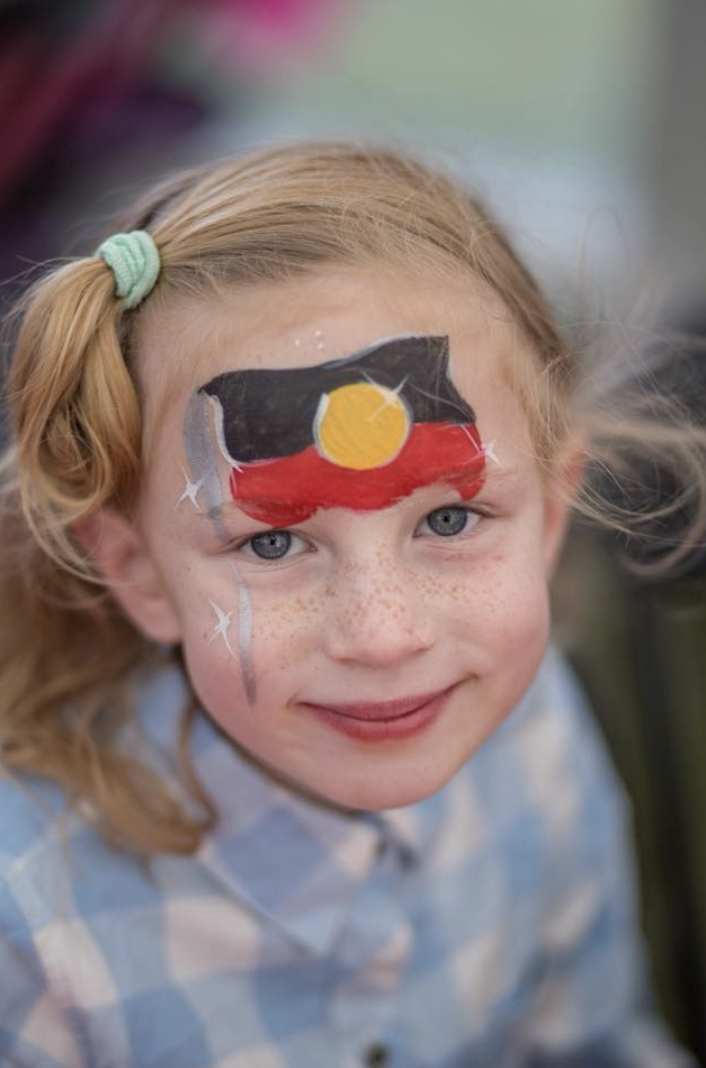Integrated Team Care supports culturally safe eye care at Karadi Aboriginal Corporation.
This 'Share Your Story' was written by Emma Robertson, Care Coordinator, Integrated Team Care, Karadi Aboriginal Corporation.
BACKGROUND
Indigenous Eye Health (IEH) have been working with Aboriginal health services, TAZREACH (the organisation responsible for visiting optometry and ophthalmology services in Tasmania) and a range of other stakeholders across Tasmania to identify opportunities for improving access and pathways of care for Aboriginal people. Karadi Aboriginal Corporation have been actively participating in this important work and the story they have shared is a great example of how delivering optometry services within Aboriginal community-controlled settings has led to improved outcomes for community members.
We are proud, we are Karadi.
Karadi employ three care coordinators in their Integrated Team Care (ITC) program who provide intensive one-to-one support for Aboriginal people who have been diagnosed with a chronic condition or disease. Care coordinators provide culturally sensitive care, advocate on behalf of Aboriginal clients and have a good understanding of the local health system. They also assist patients to attend appointments and coordinate health care, liaise with all providers involved in the care of the patient, provide links to other community services that may be of benefit and help the client to develop self-management skills.
Pictured: Karadi Aboriginal Corporation care coordinators; Marc Hicks and Emma Robertson
The Karadi’s integrated team care program is supported by Primary Health Tasmania under the Australian Government’s PHN Program.
A client of Karadi, an Aboriginal woman in her 60’s, never had her eyes tested before due to her lower literacy levels. She had a lot of shame associated with the eye test component and always had a fear that she would be unable to complete an eye test because she would be asked to read the letters on the eye chart due to her illiteracy. Due to fear of shame and embarrassment this client avoided having her eyes tested her entire life.
Her life has had a dramatic change, with her vision being better than it has been in years. She now feels less stigma about her low literacy levels.
To support this client through this barrier to accessing eye services, the ITC staff worked with the visiting optometrist (part of the Visiting Optometrist scheme - VOS) to adjust the testing to meet the needs of the client and save her embarrassment. The client’s deteriorated vision has since been corrected with glasses and is doing better than ever.
From this experience, the ITC team have been able to build support around this client and others with low literacy levels. One example includes delivering written materials through verbal presentations to clients to increase their knowledge and understanding of health issues affecting them, their families and their communities.
It was assumed that with so many mainstream eye care providers, clients would access them. It was an assumption that was way off.
The VOS was initially refused at Karadi as they are a regional Aboriginal Community Controlled Health Organisation with 5 to 6 optometrists within a 2km radius of their site. It was assumed that with so many providers, that clients would access them. It was an assumption that was way off. The first VOS clinic was fully booked within 20 minutes, with a 100% attendance rate and a wait list for further clinics.
Clients were surveyed to understand reasons for the successful VOS clinics, here are some of the reasons:
- That staff that know clients can help facilitate and explain medical issues to VOS staff or act as an advocate if needed
- That it is at “their” service”, they already feel safe and comfortable there
- Clients can be assisted with transport or by removing barriers to access
- That Karadi staff can explain or be present during the eye test.
Cultural safety can be a key barrier for Aboriginal and Torres Strait Islander people accessing health services. By having the VOS team onsite at Karadi, can help clients feel culturally safe and be familiar with their surroundings.
This is their place and there is a sense of comfort in that.
If you have any questions relating to this ‘story’ please contact Emma Robertson, Care Coordinator, Integrated Team Care at Karadi Aboriginal Corporation via email erobertson@karadi.org.au or by telephone (03) 62723511.
This 'Share your Story' article was published 10 Oct 2019.










